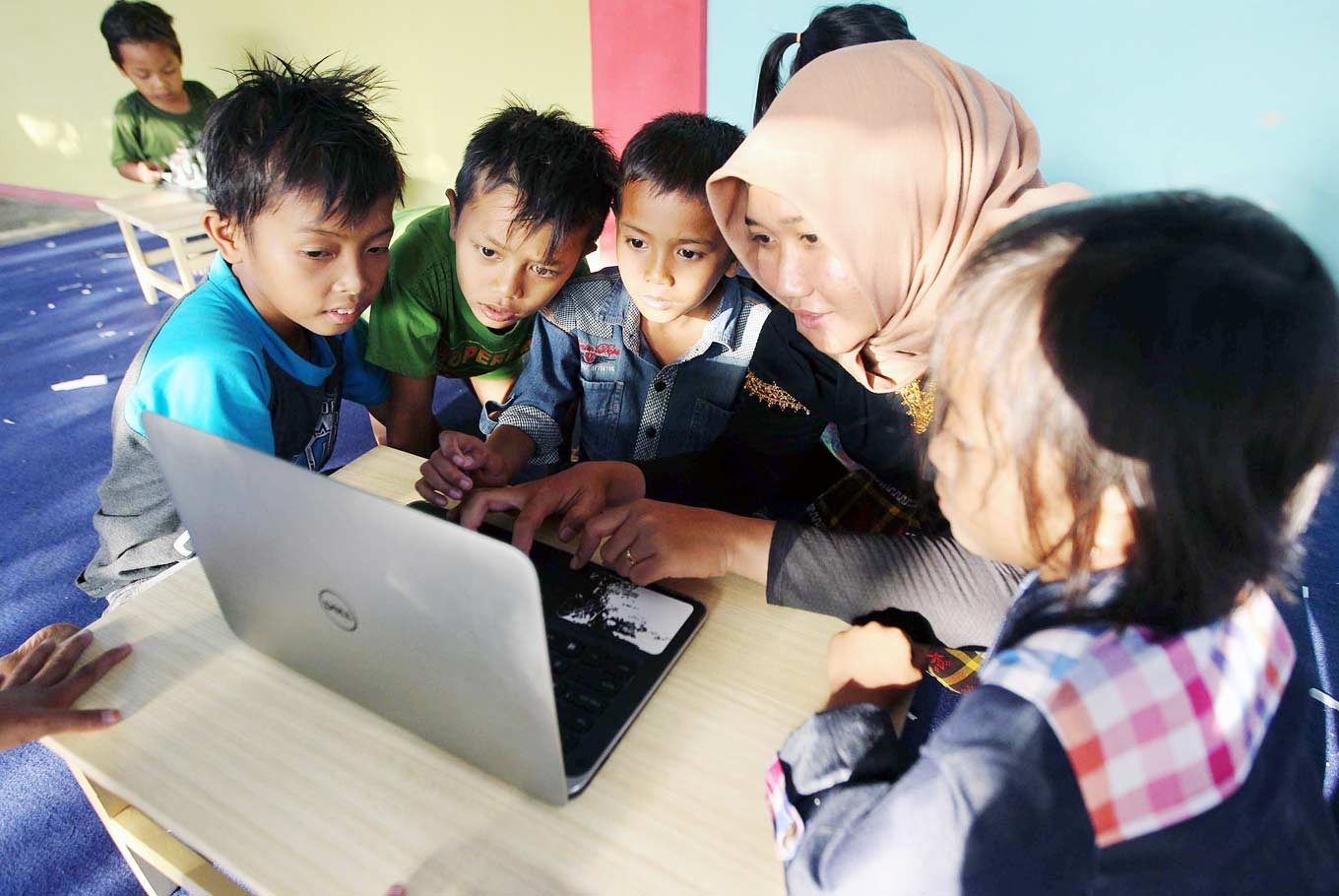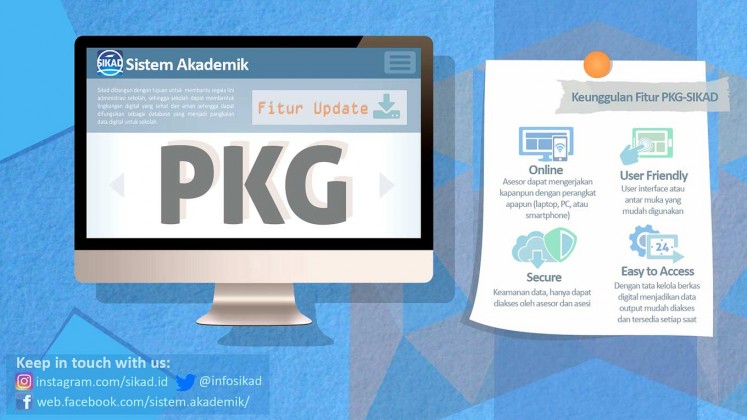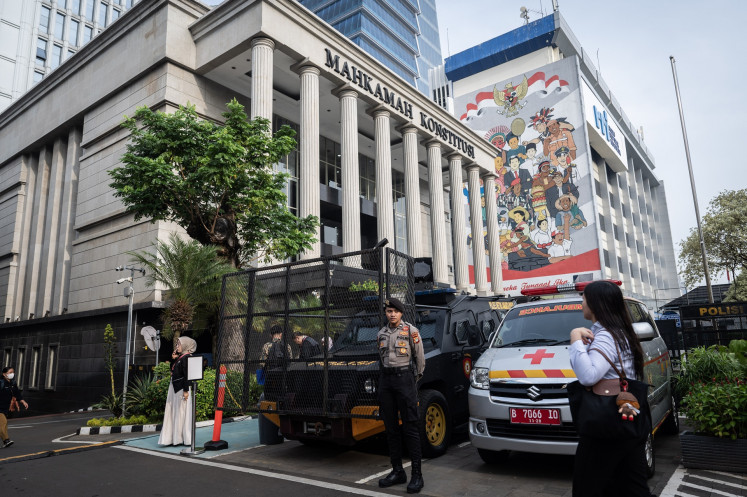SIKAD: A digital database to ease school life
Change text size
Gift Premium Articles
to Anyone
 After school: A teacher shows a feature on her laptop as children watch at a nonprofit learning facility in Kabar village in East Lombok, West Nusa Tenggara. (JP/Wahyoe Boediwardhana)
After school: A teacher shows a feature on her laptop as children watch at a nonprofit learning facility in Kabar village in East Lombok, West Nusa Tenggara. (JP/Wahyoe Boediwardhana)
W
hile teaching is a rewarding job, maintaining the school administration system — including student absences, study plans and teaching records — can be painful if using an outdated manual infrastructure.
Former teacher Zainal “Zee” Abidin had observed that the school system was completely inefficient, particularly in terms of record-keeping and transparency.
What really struck Zee as troublesome and outdated was the fact that he still needed to carry around a lot of physical documents, such as his study plans, teaching materials and a daily journal that he had to fill out every day, marking off the end of each school day.
The process, he described it, was too convoluted and complicated to juggle effectively, plus with the endless documents that he had to carry around, it was just not convenient.
This led him to establishing the Sistem Akademik (SIKAD) startup back in 2013, which functions as a cloud-based administration database to keep track of a school’s digital data.
Some of the core functions of SIKAD include report book printing and archiving, as well as making study plans and teaching records more transparent and accessible, not only to teachers, but also to parents so they can monitor the performance of their children and the school.
Streamlining tuition payments and keeping business records are also included in the system.
Zee said SIKAD was also built with the aim of monitoring. Not only monitoring students and study plans, but also the performance of students and teachers seen from a wider point of view.
He feels that keeping an effective, real-time record of performance and curriculum is important as it can quickly identify the areas in which a school needs to improve.

“I would describe SIKAD as a straightforward database for teachers to keep track of student absences, study materials, subjects to follow up on, what they need for a day’s teaching, etc. To have a database that integrates everything from the start, it’s just very helpful,” Zee said.
City education agencies can also use the SIKAD system to monitor the performance of certain schools, the performance of teachers and even oversee the physical conditions of the schools themselves.
“The point of SIKAD is primarily to reduce the burden of data recording for teachers and students.
“I personally support any Smart City initiatives and it would be wonderful if they were to have an educational sector in there too,” Zee said.
He also hopes the SIKAD system will help lower the rate of absenteeism, as it can detect and analyze student and teacher attendance patterns.
Currently, the SIKAD system has been implemented in 153 schools in Gorontalo province, and will soon also be rolled out in Bekasi, West Java in 2018.
The startup’s marketing campaign will likely be pushed until 2019, after which Zee feels confident he will be able to let the system grow on its own, due to the upcoming completion of the Palapa Ring project.
“If the Palapa Ring project has been completed, we will be able to reach many schools located in very rural areas across Indonesia,” he explained.
The idea of SIKAD has managed to grab the attention of potential investors and venture capital firms in Indonesia, as the startup is now undergoing a program with GnB Accelerators: a joint venture between Japanese IT company Infocom Corp. and venture capital firm Fenox VC, which involves a mentorship program as well as an investment of US$50,000.
“Hopefully, with this initial investment, SIKAD can improve its service quality and can appeal more to schools,” Zee said.









